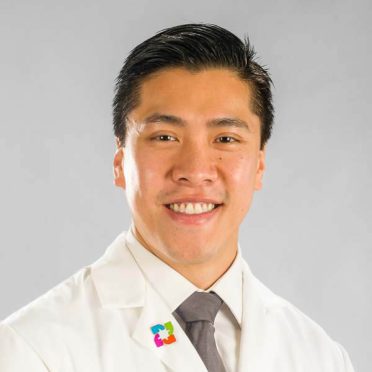According to the National MS Society, roughly a million people over the age of 18 are living with multiple sclerosis in the United States.
“Multiple sclerosis is an autoimmune condition where a person’s immune system incorrectly attacks their own body,” said Dr. Brian Wong, a neuroimmunologist with Hartford HealthCare’s Ayer Neuroscience Institute and co-director of the Multiple Sclerosis Center in Southington. “Specifically the central nervous system is affected, which includes the brain, spinal cord and the nerves which provide us with vision, the optic nerves.”
Dr. Wong says people with MS typically experience their first symptoms somewhere between their mid-teens to mid-40s, but most people are diagnosed in their 20s and 30s.
Symptoms of MS can vary, but often include:
- Fatigue.
- Muscle aches.
- Difficulty walking.
- Numbness or tingling (body or extremities).
- Vision problems.
- Bladder/bowel problems.
- Cognitive changes.

“Sometimes diagnosing MS can be difficult because many of the symptoms that individuals experience are nonspecific,” said Dr. Wong.
So how do doctors make a diagnosis? Dr. Wong says MRI imaging is the first tool used to get a look at the brain and spinal cord for evidence of autoimmune activity on the nervous system.
“We can also perform blood tests to rule out other conditions and spinal fluid testing is often needed to help make a diagnosis as well,” he said.
Treatment for MS has come a long way in recent years, according to Dr. Wong. He said there are currently 23 FDA-approved medications for MS. In 2000, there were only five.
“Medications have proven to be very effective in slowing or preventing disability,” he said. “Most of our patients do quite well over time with the appropriate treatment and therapy.”
Hartford HealthCare’s Multiple Sclerosis Center was recently designated as a Center for Comprehensive MS Care by the National Multiple Sclerosis Society due to the care and specialists it provides MS patients.
“There is no cure for MS, so it’s important for those who are living with the disease to follow up with their doctor and make sure they are going through the appropriate testing and treatments,” said Dr. Wong. “Getting diagnosed early means treatment can also begin before the disease progresses – resulting in better outcomes for our patients.”
Dr. Brian Wong is a neuroimmunologist with Hartford HealthCare’s Ayer Neuroscience Institute and co-director of the Multiple Sclerosis Center in Southington. For more information, call 860.628.3910 or visit www.hartfordhealthcare.org/ms.



